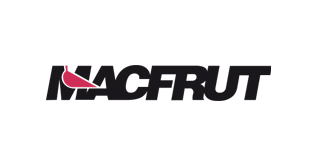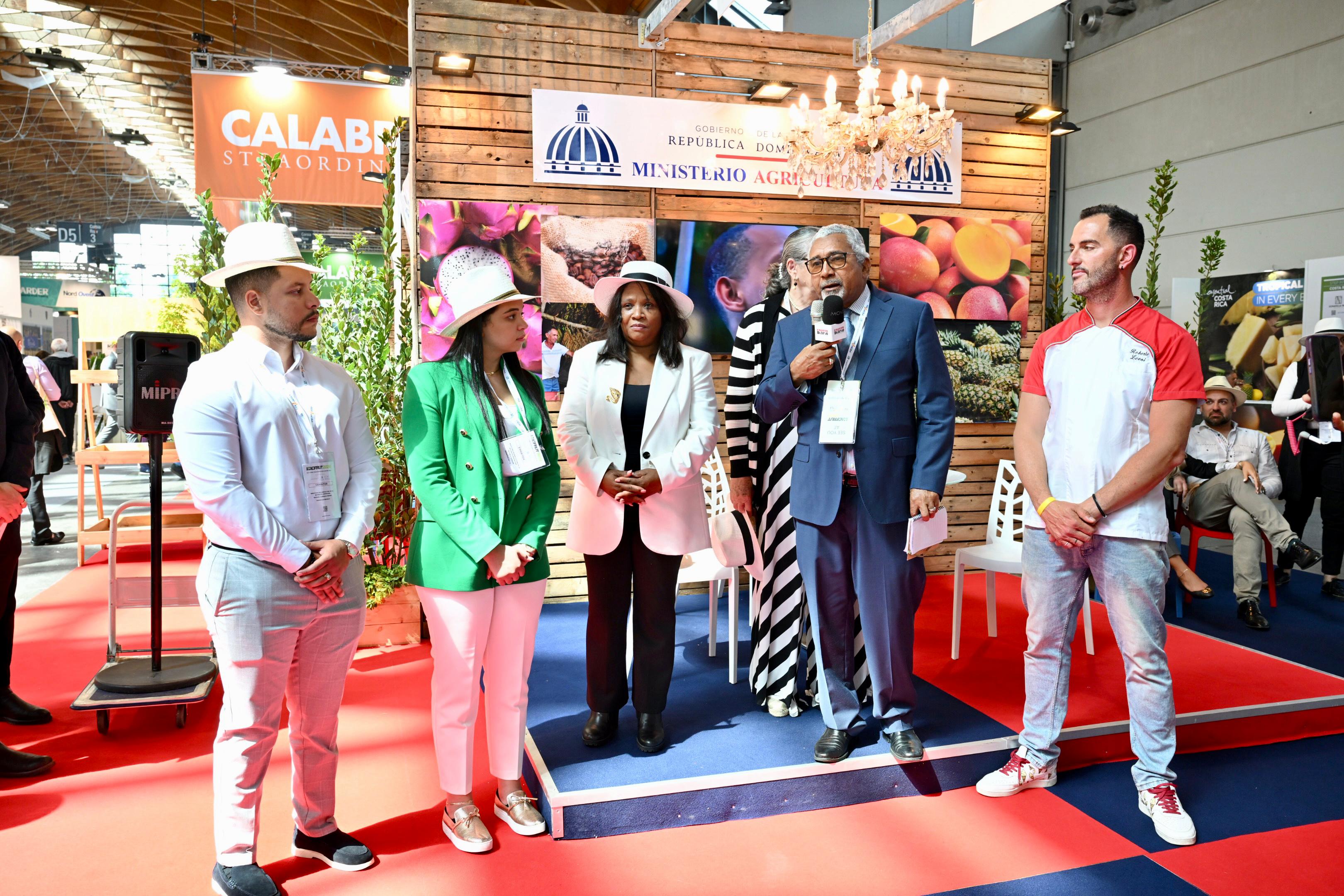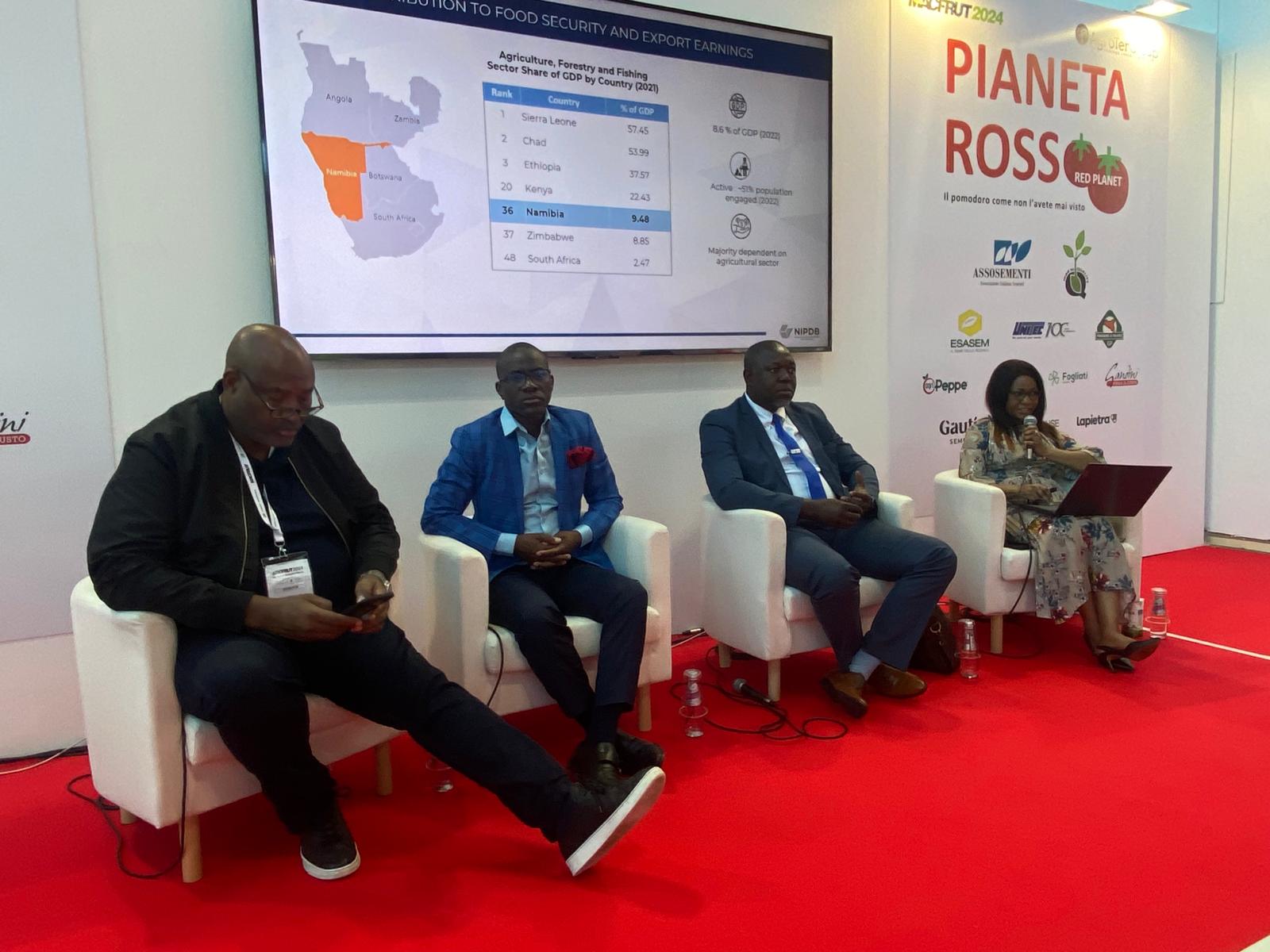

Macfrut
Services
Macfrut, Daily May 10th
Focus on mango, the new frontiers of rootstocks, varietal innovation in horticulture and business opportunities with Namibia. The events of the last day of the fair

Focus on mango from the Dominican Republic, the new frontiers of rootstocks, the varietal innovation chain in horticulture and business opportunities with Namibia. Many events on the last day of Macfrut (May 10th), once again a crossroads on the global future of fruits and vegetables.
Mango Day
The production of Dominican mango is continuously growing: potentially mango represents the symbolic fruit of the agricultural production of the Central American country, and producers are focusing on this crop which has great added value due to its high quality and properties. For this reason, in the last twenty years, many traditional crops have been converted to mango: from livestock to bananas, mango is the first Dominican product to be exported. This was discussed at Macfrut during the 'Mango Day' event promoted by the Dominican Republic.

"Our country is expanding mango production - explained Salomon Rodriguez, president of the Asociación Banileja de Productores de Mango, the national association that brings together all agricultural companies dedicated to this exotic fruit. - Currently, we have reached 30 thousand hectares (equivalent to about 70 thousand tons of product) in various production stages. About 70% is already in production, 30% has been sown. If we look at the country's production potential, we can more than double what we already have, but before we can expand production, we need to improve farming techniques and, in any case, the sowing of new areas for export will be linked to demand.
"The ongoing renewal process - Rodriguez specifies - does not only concern technological upgrades that we aim to achieve also thanks to participation in Macfrut, which creates a bridge for the exchange of products and know-how between respective countries. We are also working on the generational turnover of plants. Old plantations are being replanted, and we expect to be able to export almost all production within two or three years. We are pushing hard on the local variety of yellow mango called Mingolo, which has conquered the United States, purchasing 90% of the exported volumes. It is very sweet and tasty and is positioned in a premium market segment."
Mango has become such an important crop that since 2005, an exclusive fair for this product has been established called Expo Mango, which will take place this year from May 31st to June 2nd.
The new frontiers of rootstocks
A return to the past in the world of rootstocks for the most common Italian fruit crops such as apples, pears, and stone fruits. The direction taken by research aims to recover the "old" vigor of these plants to make them resistant to new diseases. This emerged during the International Rootstock Symposium held at Macfrut over two days of work involving leading researchers from around the world.
In addition to research results, it has also emerged that Italian and European horticulture, in general, is moving eastward, particularly to Azerbaijan, Uzbekistan, or Moldova, where, due to climate change, optimal conditions are being created, at least in this initial phase, for more sustainable and profitable apple and cherry cultivation.
"These countries are fortunate, first of all, to have very fertile and virgin lands - explains Stefano Lugli, coordinator of the salon and convener of IRS together with Stefano La Malfa - because they have never practiced horticulture. In Italy, on the other hand, we have been doing it, increasingly intensively, for almost two centuries. These are also areas where it hardly ever rains in spring and summer, a factor useful for horticulture which does not need rain during the cherry season but irrigation. Environments useful, especially for apple and cherry, which require cold winters to accumulate the necessary cold hours to fruit."
Research is now directed towards more rustic and resilient rootstocks, but equally efficient, both for cherries and other stone fruits, and apples.
In the first case, for example, developments have been carried out by Russian researchers Gennady and Viktor Eremin at the Experimental Station for Genetic Improvement Krymsk (mentioned by Frank Mass of Varieties International, sponsor of the event) "selecting new rootstocks for stone fruits adaptable to climate changes such as lack of water in southern areas or cold winters for northern ones." In the second case, Lugli continues, "researchers from USDA and Cornell University in Geneva have worked on apple rootstock lineages to make them resistant to bacterial diseases and other apple pathologies."
Regarding pears, Lugli concludes, "Alternatives to using dwarfing rootstocks of the quince group in intensive or super-intensive pear systems are being sought. Research is directed towards equally efficient and semi-dwarfing rootstocks, more rustic and resistant to ongoing climate changes and the pathologies that currently affect our pear cultivation. The direction that emerged from the symposium is towards less intensive, more long-lived planting systems that are equally efficient in terms of production and quality, achievable thanks to the new free pear rootstocks that research has selected and made available to growers."
The varietal innovation chain in horticulture
After the abrupt legislative slowdown experienced by the EU regulation on PVP, which contains, among other things, an amendment related to the protection of varieties that - if approved - would prohibit any form of varietal patenting, the Union is working on a proposal for a regulation that will modernize the directives for marketing any type of reproductive material (seeds, fruit trees, etc.) to align them with the dictates of the Green Deal.
Meanwhile, genetic improvement programs are ongoing in Europe, as emerged during the event The Varietal Innovation Chain in Horticulture held on the last day of Macfrut.
The Experimental Centre Laimburg in Bolzano has initiated a genetic improvement plan on apples, which, globally, has reached an unprecedented level of research intensity. "From 1995 to today - said Walter Guerra, researcher at the Bolzano center - Europe has granted, on apples, 293 privileges (34 of which are Italian, accounting for 12%); there are 110 ongoing applications (21 of which are Italian, 19%), and the rights of privilege on 129 varieties have expired (9 of which are Italian, 7%)."
Throughout Europe, the areas with exclusive (club) apple varieties exceed 230. Germany is in first place with 65 exclusive varieties distributed in various production areas, of which about twenty are 'resistant'. Italy follows with 25 exclusive varieties in South Tyrol, 22 in Emilia-Romagna, and 15 in Piedmont, of which, respectively, 5, 7, and 7 are resistant. Switzerland is the region that is pushing the most on the research of resistant varieties. Out of 18 exclusive cultivars, 15 have this characteristic.
"Brand protection is important - said Jurgen Braun, Kiku variety management -. On the Kiku Club, where light protection has been activated allowing freedom on seeds, although we have implemented a very aggressive marketing policy for market positioning, we have experienced seed cannibalization by producers who have become the main competitors in the market. This did not happen with the Crimson Snow variety where we opted for complete protection. For this variety, we are aiming to expand production from 40,000 to 50,000 tons because commercial tests are in advanced stages in North America, South America, and Africa."
Among varietal improvement activities, the New Plant, a consortium company participated in by three major Ops, namely Orogel Fresco, Apofruit, and Apo Conerpo, has released a kiwi chinensis variety called 459 011 (brand 'Dulcis') which, although green, has the typical taste of yellow-fleshed ones. It has been registered in Europe, and efforts are being made to protect it in the southern hemisphere as well. The next phase will be to complete the entry into production of 250 hectares, while consumer tests are underway in Italy and Europe.
Namibia, business opportunities
Namibia has presented investment opportunities for the high-value fruit and vegetable sector in the African state. Namibia is a country with extremely high potential, which, with its growing economy and abundant natural resources, offers a favorable environment for investments in various sectors.
Tina Andima, investment and export promotion officer, presented the NIPDB program - Namibia Investment Promotion and Development Board, which plays a key role in facilitating investments in the country, providing information, assistance, and incentives for national and foreign investors interested in exploiting the opportunities in the agricultural sector and other key sectors of the Namibian economy. To support the development of these sectors, an institution such as the Namibian Agronomic Board (NAB) has proved fundamental.

"NAB - said Fidelis Mwazi, Chief Executive Officer of the agency - is committed to providing regulations and technical support to promote productivity and sustainability in agriculture in Namibia. Our goal is to create a favorable environment for investments in the sector." Additionally, Richwell Lukonga, Chief Executive Officer of the Namibia Industrial Development Agency (NIDA), illustrated the NIDA's industrial development program in Namibia, whose main objective is to offer incentives and assistance to investors interested in developing projects in the industrial sector, including those related to the transformation and marketing of agricultural products. In recent years, some products have seen a significant increase in production and demand, including table grapes, dates, blueberries, and potatoes, thanks also to the "Orange River Irrigation" project by Dr. Jeremy Muadinohamba, founder of Muadifam Enterprises.










